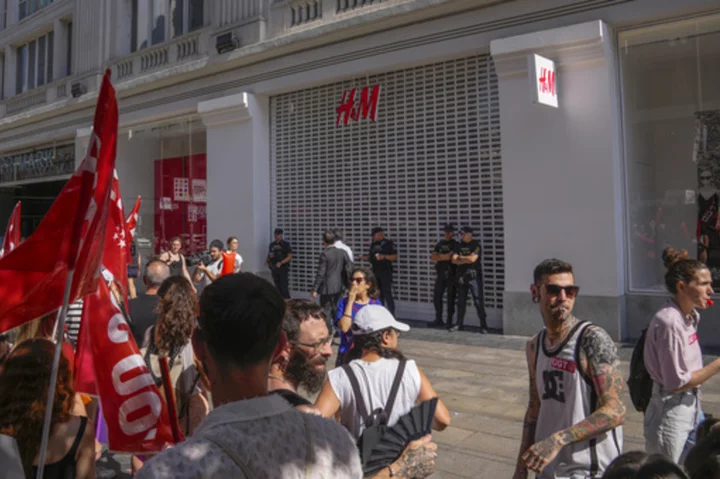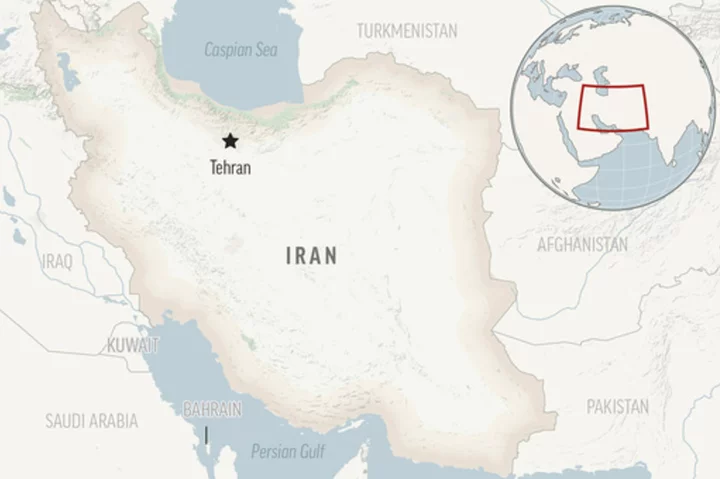MADRID (AP) — Hundreds of retail workers on Monday walked off the job across Spain in a new round of strikes against the fashion giant H&M Group, extending a series of store closures in the middle of the summer sales season.
More than 4,000 Spanish employees at the Swedish multinational's brands including H&M, Other Stories and Cos are seeking pay rises in line with the higher cost of living and are protesting increased workloads linked to layoffs during the COVID-19 pandemic.
Monday's walkout was the third day of strikes by H&M Group employees this month. Flagship stores in Madrid have closed, with hundreds of workers gathering in front of the city's largest H&M location to demand better conditions as online sales increasingly fracture the retail industry.
Union leader Ángeles Rodríguez Bonillo told The Associated Press that workers had lived with “salaries that have been frozen for many, many years” but now have found their situation untenable “with the economic situation and the high cost of living.”
Inflation is high in Europe and around the world following the global economy's rebound from the pandemic and Russia's war in Ukraine, forcing people to spend more on food, utility bills and other purchases. Consumer prices rose 7.1% in the European Union in May from a year earlier, though Spain's inflation rate is one of the lowest in the 27-nation bloc, at 2.9%.
The price pinch has led to months of disruptive strikes and protests by workers across Europe who are pressing for wages that keep pace with inflation.
In Spain, monthslong negotiations between the main UGT and CCOO unions and H&M Group broke down on June 19, leading to a series of strikes that began on June 20 and have now been extended into the first two Saturdays of July.
Mediation efforts would begin this week, Rodríguez Bonillo said.
A 24-hour strike on Thursday was observed by 80% of H&M Group's workforce in Spain, the unions said in a statement, leading to the closure of 100 stores.
European service workers union UNI Europa said the strikes reflected a “problematic change of attitude at H&M” toward more precarious, part-time contracts in larger stores that also receive online orders.
“This move by management in Spain is not an isolated example. Even in the company’s home country of Sweden, workers are being pushed into the precarity of zero-hour contracts,” said Oliver Roethig, regional secretary of UNI Europa.
H&M Group did not immediately respond to a request for comment.









